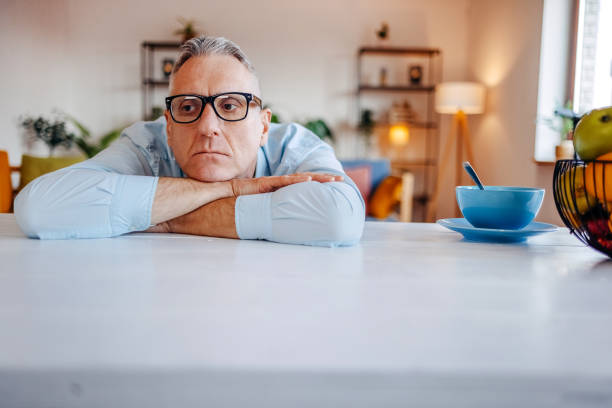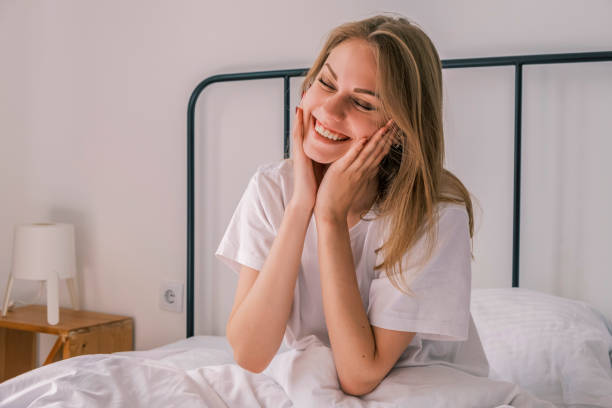.webp)
.webp)
Expert dental tips, news, and smile advice
Can a Dentist Really Help With Sleep Apnea? Here's What Most People Don’t Know
August 7, 2025
By Admin
“I Didn’t Want a CPAP—So I Just Lived With It”

David was in his late 40s when his doctor told him he had obstructive sleep apnea. He wasn’t surprised. He snored. He felt exhausted every morning. His partner was tired too—of nudging him awake every time he stopped breathing. What did surprise him? The solution: a bulky CPAP machine he’d have to wear every night.
“I tried it,” David told us at his first visit to Lifetime Smiles in Austin. “But I couldn’t sleep with that thing. I felt claustrophobic. Eventually I just stopped using it.”
This story isn’t rare. And if you’re nodding along, here’s what you might not know:
A trained dentist can often treat mild to moderate sleep apnea with a small, custom oral appliance—no machine required.
Let’s break it down.
What Is Sleep Apnea, Really?
Obstructive sleep apnea (OSA) is a condition where the soft tissues in the back of your throat collapse during sleep, blocking your airway. It can cause:
- Loud snoring
- Pauses in breathing
- Waking up gasping or choking
- Morning headaches
- Brain fog, irritability, and chronic fatigue
Most people don’t realize they have it—until someone else points out the snoring, or they start waking up exhausted despite a full night in bed.
If untreated, sleep apnea has been linked to high blood pressure, heart disease, stroke, and even memory loss. It’s not just about sleep—it’s about survival.
Why Would a Dentist Treat a Breathing Problem?
This is the part that surprises most people:
Sleep apnea often involves the structure of your mouth, jaw, and airway—all things your dentist understands deeply. Dentists trained in dental sleep medicine can identify issues with your bite, tongue position, and airway space that contribute to nighttime obstruction.
At Lifetime Smiles Cosmetic Dentistry, Dr. Arzegar works with patients and physicians to treat sleep apnea using oral appliance therapy—a non-invasive alternative to CPAP.
What Is an Oral Appliance for Sleep Apnea?

It’s not unlike a nightguard or Invisalign tray—but it’s custom-molded to gently shift your lower jaw forward during sleep. That small change keeps your airway open so you can breathe uninterrupted.
The benefits of oral appliances:
- Small, discreet, and travel-friendly
- Comfortable and easy to wear
- No noise, hoses, or electricity
- Often covered by medical insurance
- FDA-approved for treating sleep apnea
And most importantly? They work.
For mild to moderate cases—or for patients who can’t tolerate CPAP—oral appliance therapy is often the best solution.
Ready to Transform Your Smile?
Discover the best solution for your smile at Lifetime Smiles Cosmetic Dentistry. Schedule your appointment now and let our expert team guide you to a confident, healthy smile.

What We Tell Our Patients in Austin
When patients come to us with signs of sleep apnea, or with a diagnosis already in hand, we walk them through a simple process:
- Sleep Study: If you haven’t already had one, we can refer you for a home or lab-based sleep study
- Evaluation: We assess your oral structures and determine whether an appliance is a good fit
- Custom Design: We take impressions or scans to create a precise, comfortable oral device
- Fitting + Adjustment: You’ll try it out, and we fine-tune it to ensure maximum comfort and effectiveness
- Ongoing Support: We monitor your progress and adjust as needed, just like we would with Invisalign or TMJ appliances
We’re not here to replace your physician—we’re part of your collaborative care team.
Patient Story: “My Sleep Got Better Within Days”

Julie, a 35-year-old teacher in South Austin, came to us exhausted. “I thought I was just stressed or aging,” she said. But after she was diagnosed with sleep apnea, her CPAP didn’t help. It felt unnatural—and she gave up on it within two weeks.
After working with Dr. Arzegar on a custom oral appliance, she started sleeping through the night. “I didn’t realize how much I was missing out on,” she said. “I feel clear again. Like someone flipped a switch.”
FAQ - Common Questions About Dental Sleep Apnea Treatment
1. How do I know if I have sleep apnea—or if it’s just snoring?
At our practice in Austin, we often tell patients: not all snoring means sleep apnea—but almost all sleep apnea includes snoring. If you snore loudly, wake up gasping, or feel tired during the day, a sleep study is the only way to know for sure.
2. Is oral appliance therapy effective for severe sleep apnea?
We typically recommend oral appliances for mild to moderate cases. In severe sleep apnea, CPAP remains the gold standard—but an appliance may still help patients who can’t tolerate CPAP. We'll work with your sleep physician to find the right approach.
3. Will insurance cover a sleep apnea oral appliance?
In many cases, yes—especially if you have a documented diagnosis from a sleep study. While dental insurance may not cover it, medical insurance often does. At Lifetime Smiles, we help patients navigate the approval and claim process.
4. How long does it take to get used to the appliance?
Most of our patients adjust in just a few nights. The appliance is designed for comfort, and we’ll make sure it fits properly. Some mild jaw soreness is normal at first, but it fades quickly.
5. I grind my teeth at night—can I still use an appliance?
Yes. In fact, some oral appliances also protect against bruxism (teeth grinding). We’ll assess your bite and customize your device so it supports both your airway and your enamel.
Sleep Is a Health Issue—Not Just a Dental One
This isn’t just about snoring. It’s about oxygen, cognition, heart health, and quality of life. If you suspect you have sleep apnea—or have already been diagnosed but can’t tolerate your CPAP—you may have more options than you think.
A simple, comfortable oral appliance could make the difference between another groggy morning and finally feeling like yourself again.
Let’s Talk About Sleep
At Lifetime Smiles Cosmetic Dentistry in Austin, we treat more than just teeth—we help restore confidence, comfort, and health.
Book a consultation today to learn more about our custom oral appliances for sleep apnea and find out if this quiet, effective solution is right for you.

Now Accepting New Patients
Business Hours
Mon & Wed
8 AM - 4 PM
Tue & Thu
9 AM - 4 PM
Fri
8 AM - 2 PM
Sat & Sun
Closed
Thank you! Your submission has been received!
Oops! Something went wrong while submitting the form.






















